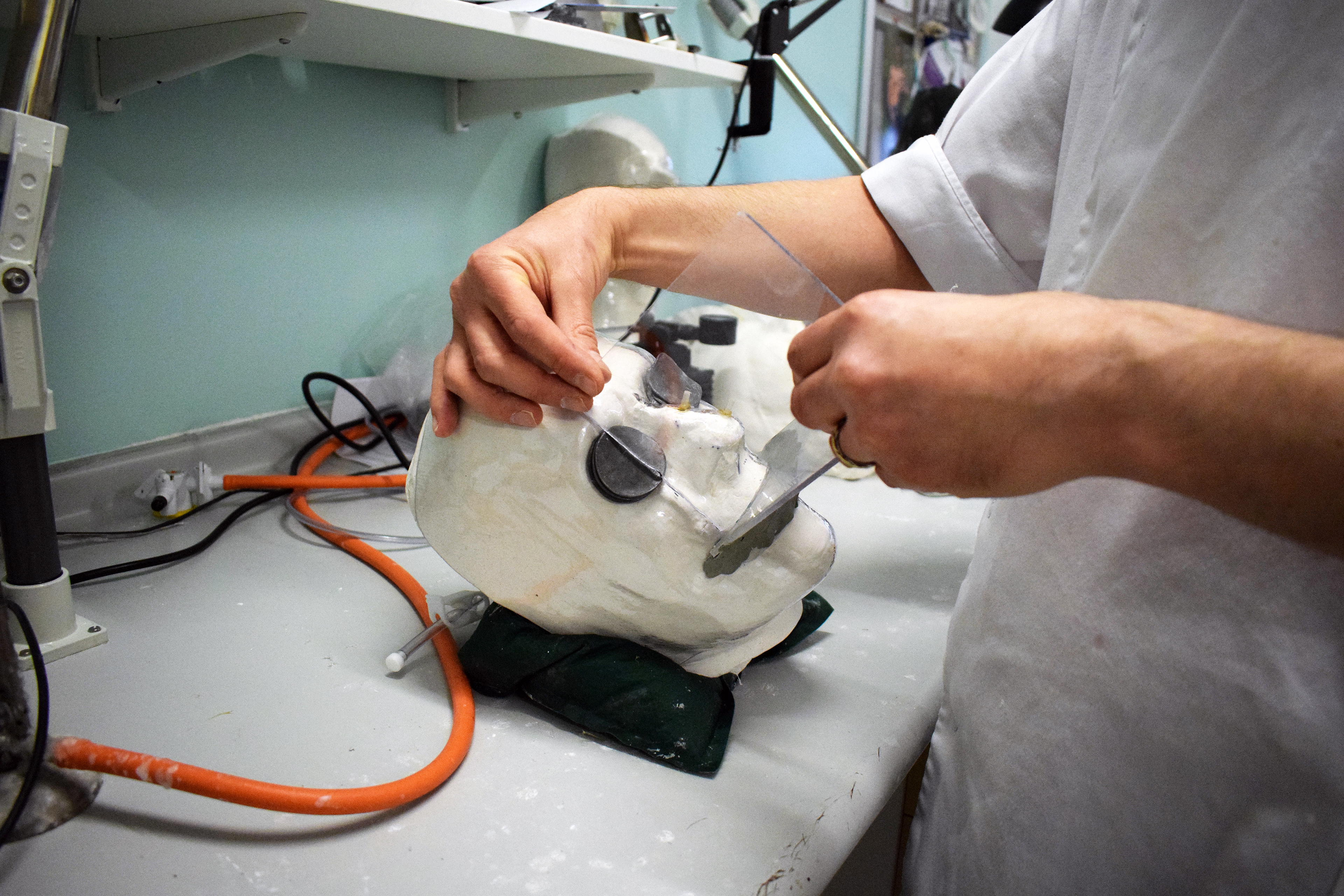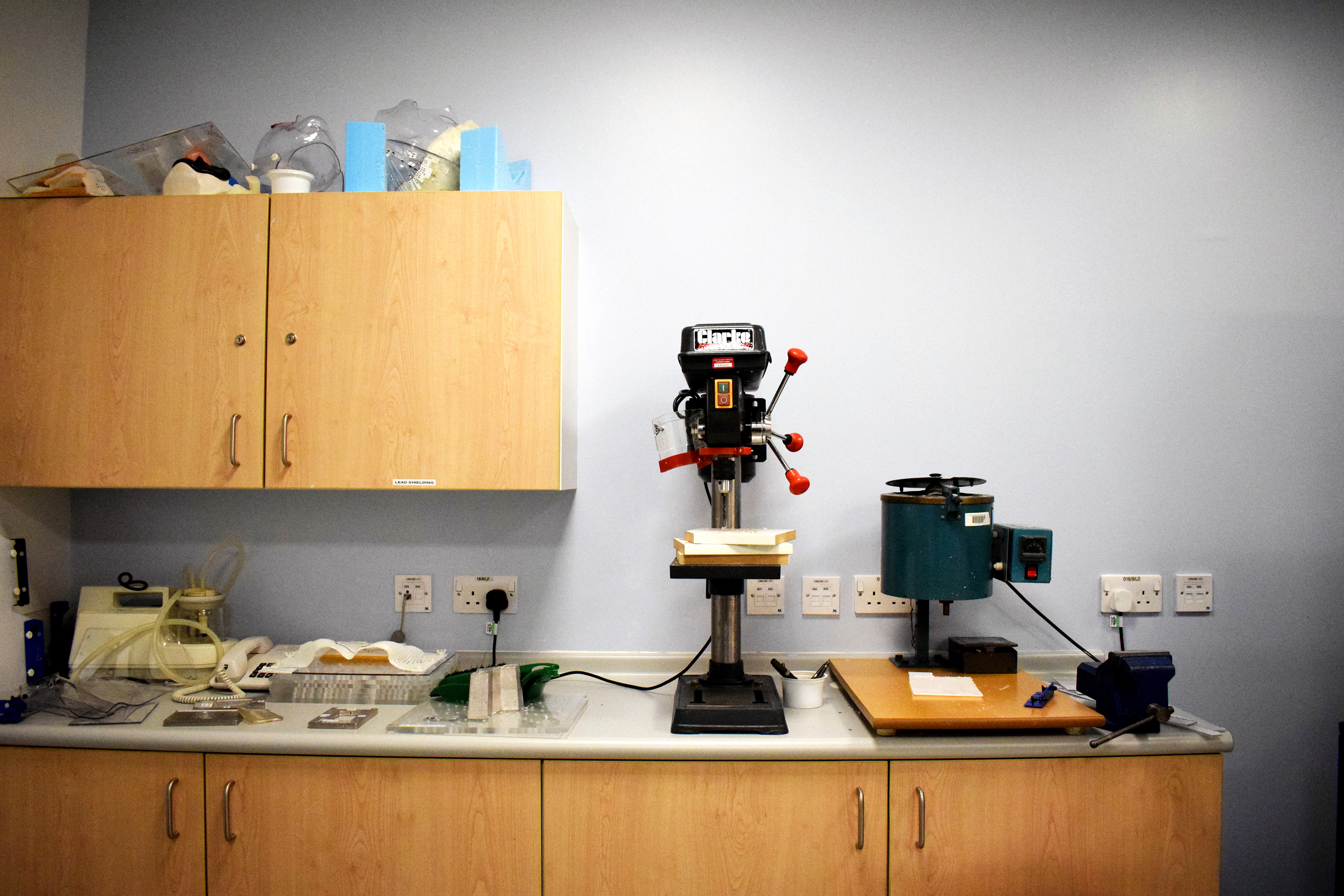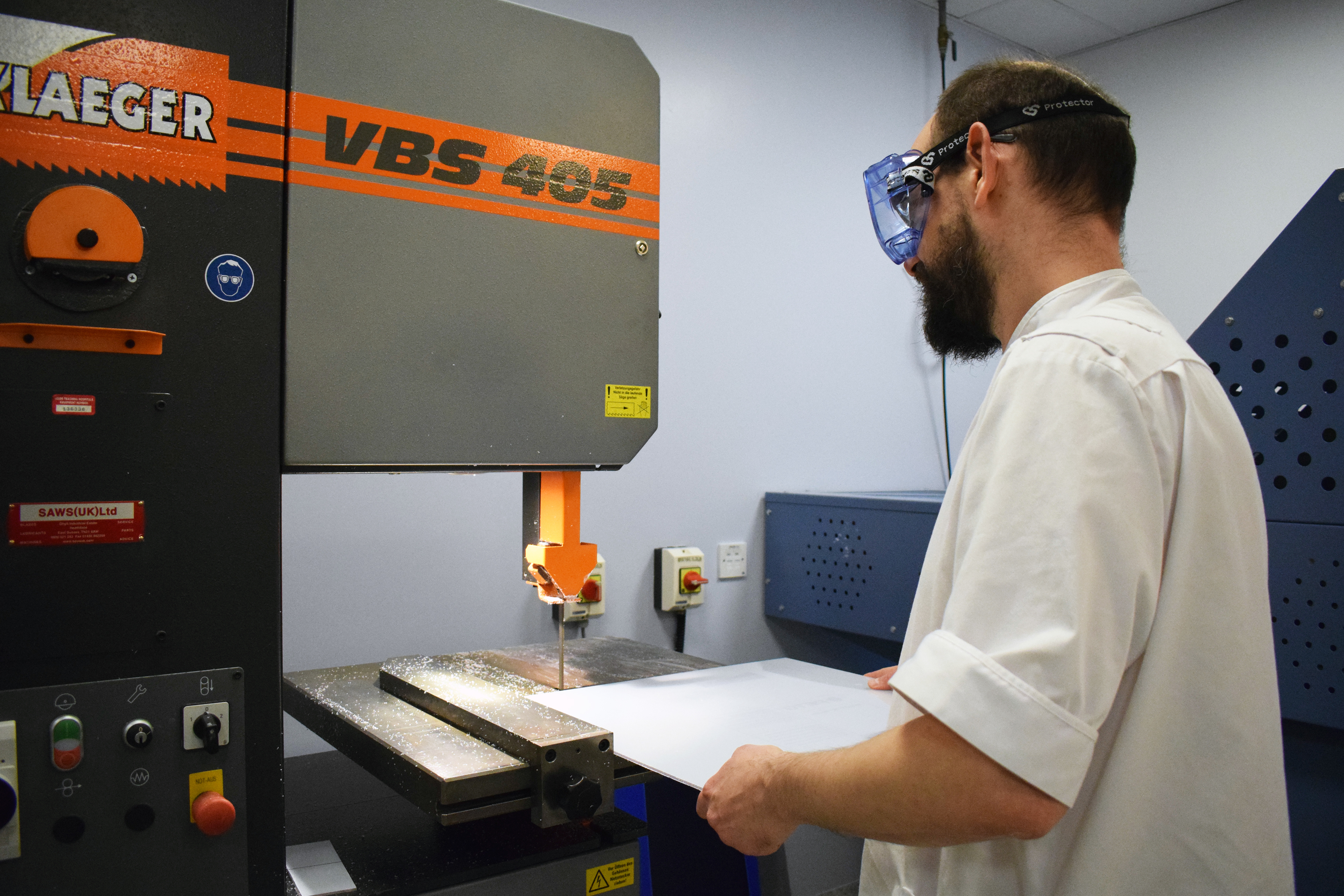Phil


My name is Phil and I am currently a mould room technician and have worked in the NHS for about 27 years. I started off in a rotational post in nuclear medicine, radiotherapy treatment and planning and mould room. I have always been quite shy and I’m dyslexic but these roles have helped to push me forward by being quite team based.
I have always had an interest in art, so this job is interesting as we are able to do live casting and it encourages you to explore different creative techniques.
It was by accident I fell into this role, there was a flyer going around in 6th form and at the time I was unsure whether to even apply to university but thought I would give it a go. I got it, and ended up doing a HNC in medical physics and physiological measurement; looking at everything from ECG, EEG, audiology, etc.
My current job involves making various bits of immobilisation and shielding for radiotherapy. It is predominantly head and neck patients, where we make masks. There are two types of masks we make; thermoplastic where we put a sheet of plastic into warm water and then you are able to mould it straight onto the patient. The other mask we make is polyester, which we do through creating a cast using plaster of Paris bandages, we then form the mask around this cast. This technique requires a little bit more involvement, and two visits to us. We can also make masks out of alginate, which is something they tend to use for special effects in films when making impressions of people and whole body’s.
I have had both types of masks made myself, and I didn’t find the mask making process too bad. Although I suppose from my point of view it may be easier as I know what is happening.
The thing I enjoy most about the job is the variation; it can often be quite challenging where the ‘normal’ ways of positioning and immobilising patients don’t tend to work, for example recently we had a patient who couldn’t lie flat due to various back issues, so we had to come up with different ways of producing a mask that could fit him comfortably.
I enjoy the challenge, and it is nice meeting patients. The team I work in is great, and because we are so small we really have to work together and everybody tends to chip in with ideas which is very dynamic.
One funny moment I remember is when we had a patient who had an impression for a mask done and came back, bringing about 6 or 7 cartoons in with him- all to do with various situations involving masks! They were things like a cartoon of a patient with a tribal mask on.
We have had some absolutely fascinating patients, such as a stuntman who worked in everything from Aliens to the old Superman film. We also got to go on a fact finding trip to hybridge studios which do all of the TV special effects, and it was really interesting to see the different techniques and materials they use.
We sometimes have anxious patients, and here we just take our time and make sure they know exactly what is happening. We also have fantastic support staff who can help with things like breathing exercises and provide relaxation tips.
My best advice is that I promise the mask making process really isn’t as bad as people think! Many people are often really worried about it, but once it’s done they often ask ‘is that it?’



